Inheritors Of The Prophets | Ibn Rajab Al-Hanbali
Inheritors Of The Prophets | Ibn Rajab Al-Hanbali
Publisher:
Dar As Sunnah Publications
Author:
Ibn Rajab Al-Hanbali
Language:
English
Binding:
Soft Cover
Pages: 144
Size: A5 |5.8 x 8.3 in| 14.8x 21 cm
Couldn't load pickup availability
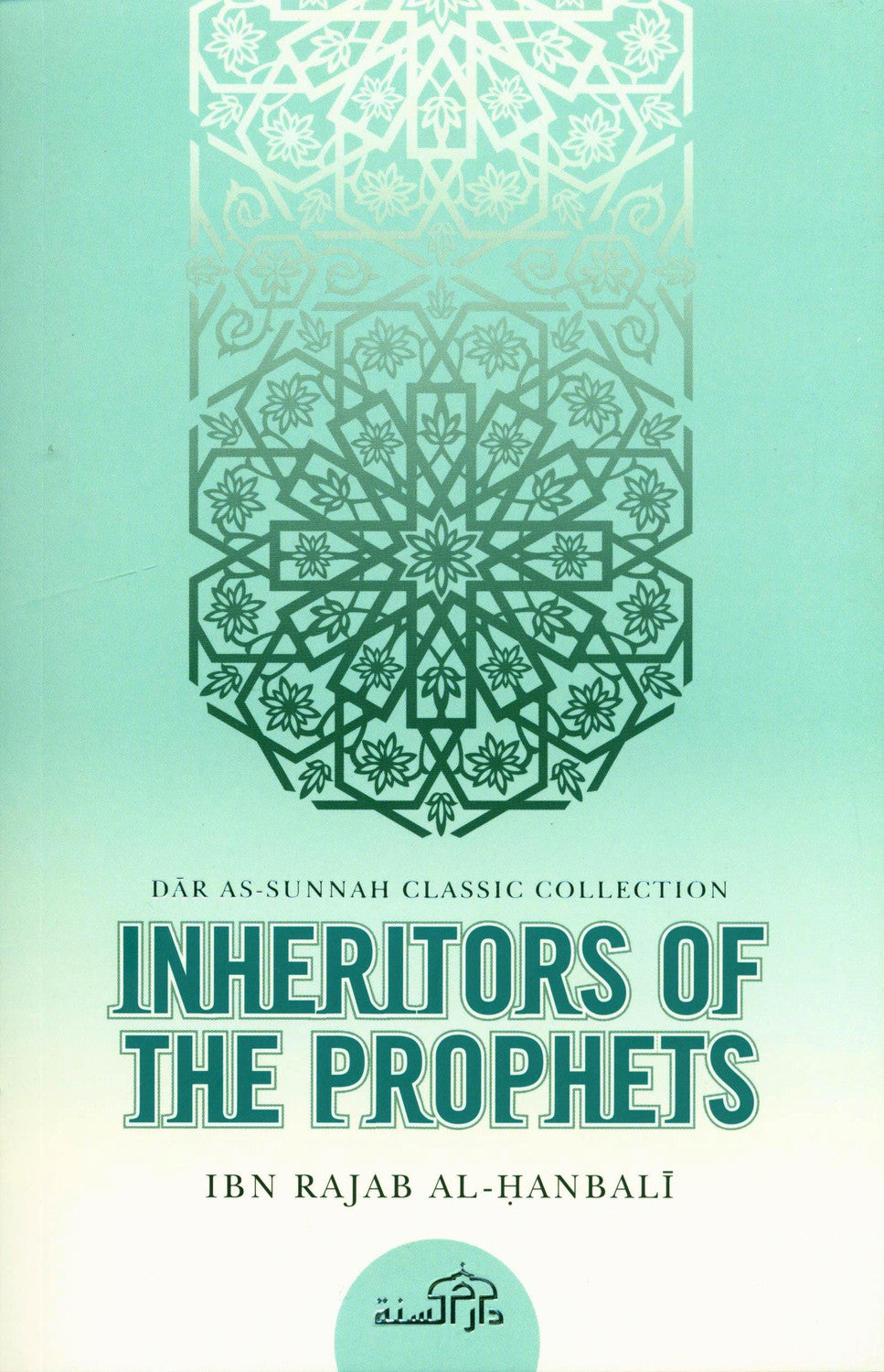
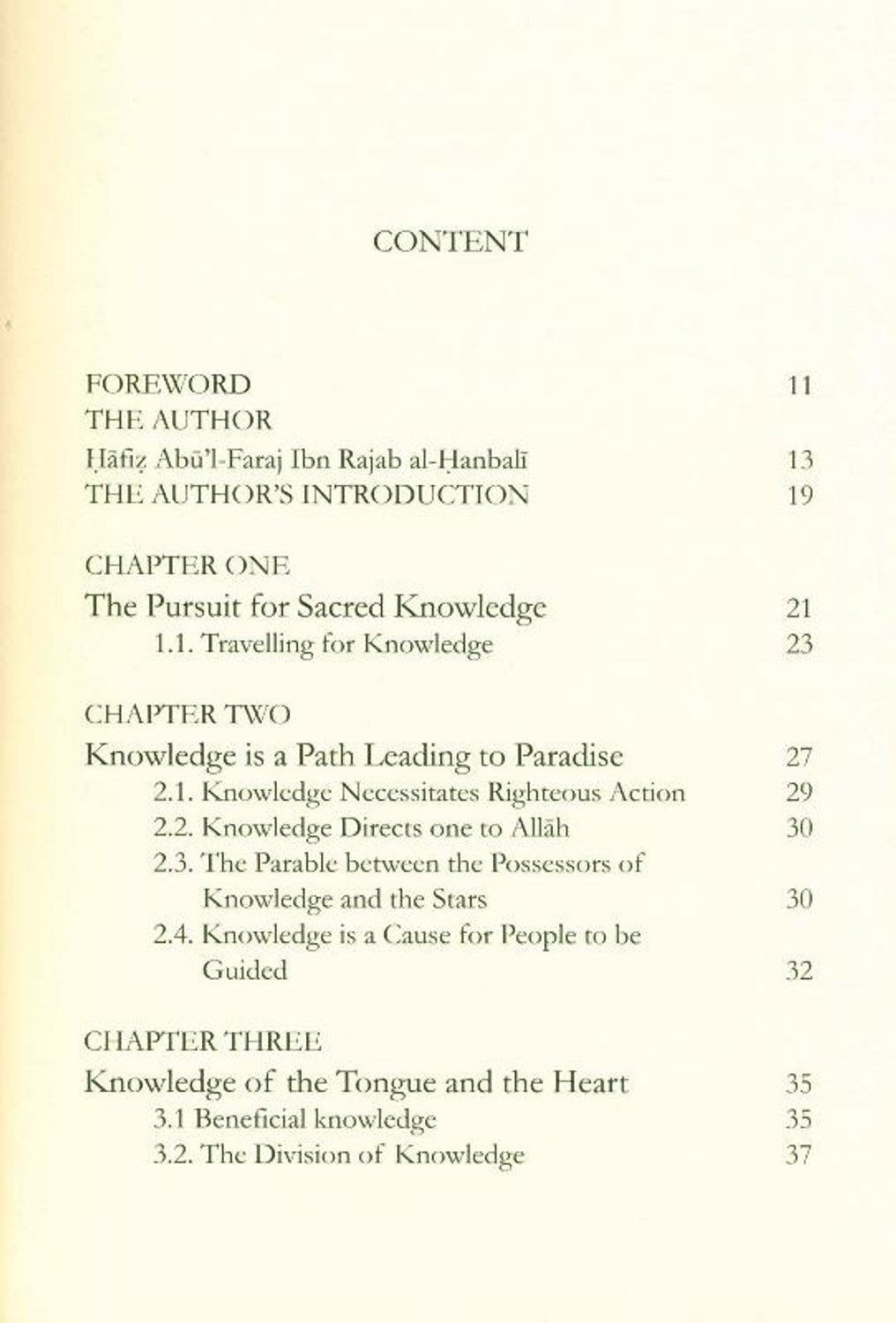
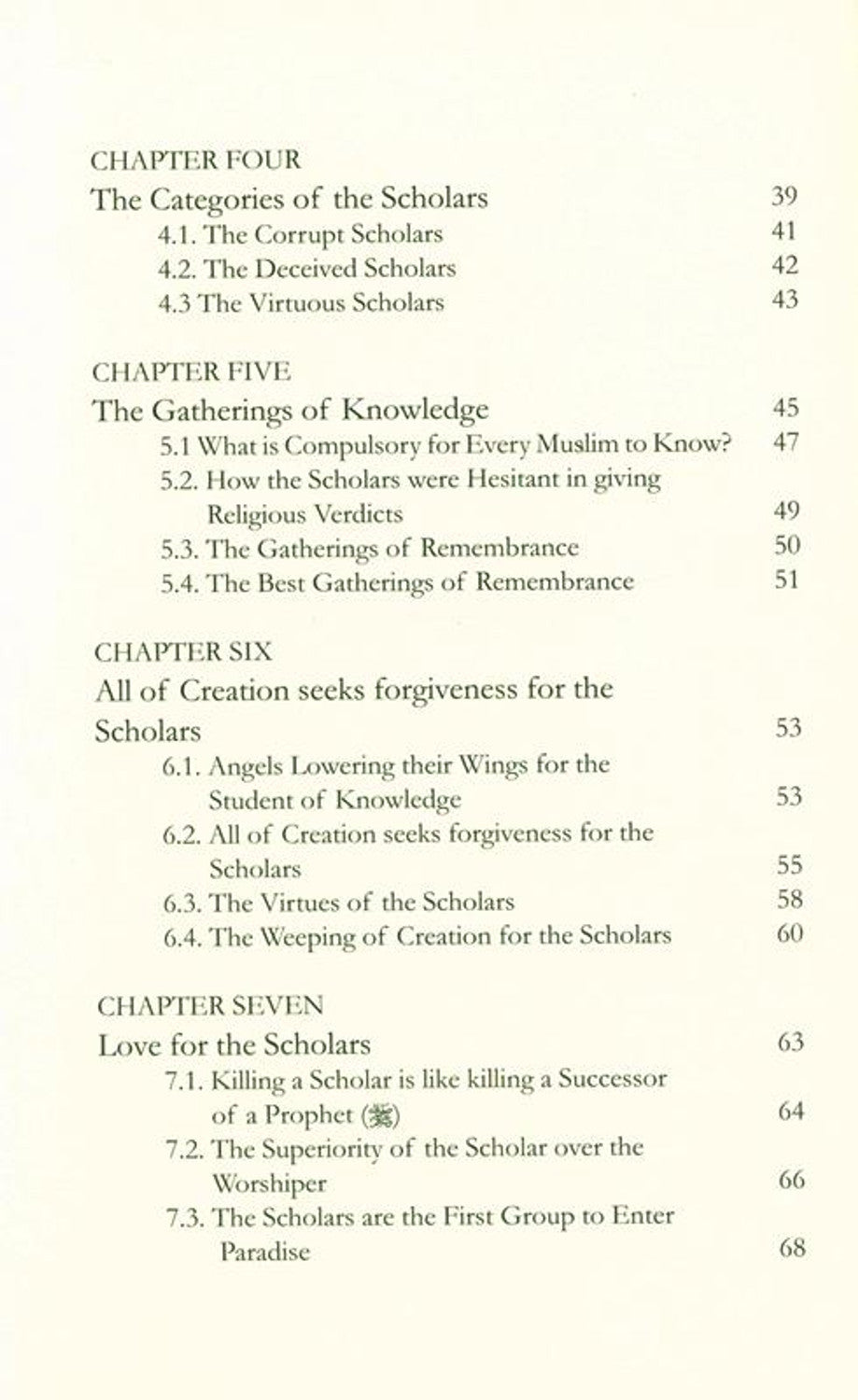
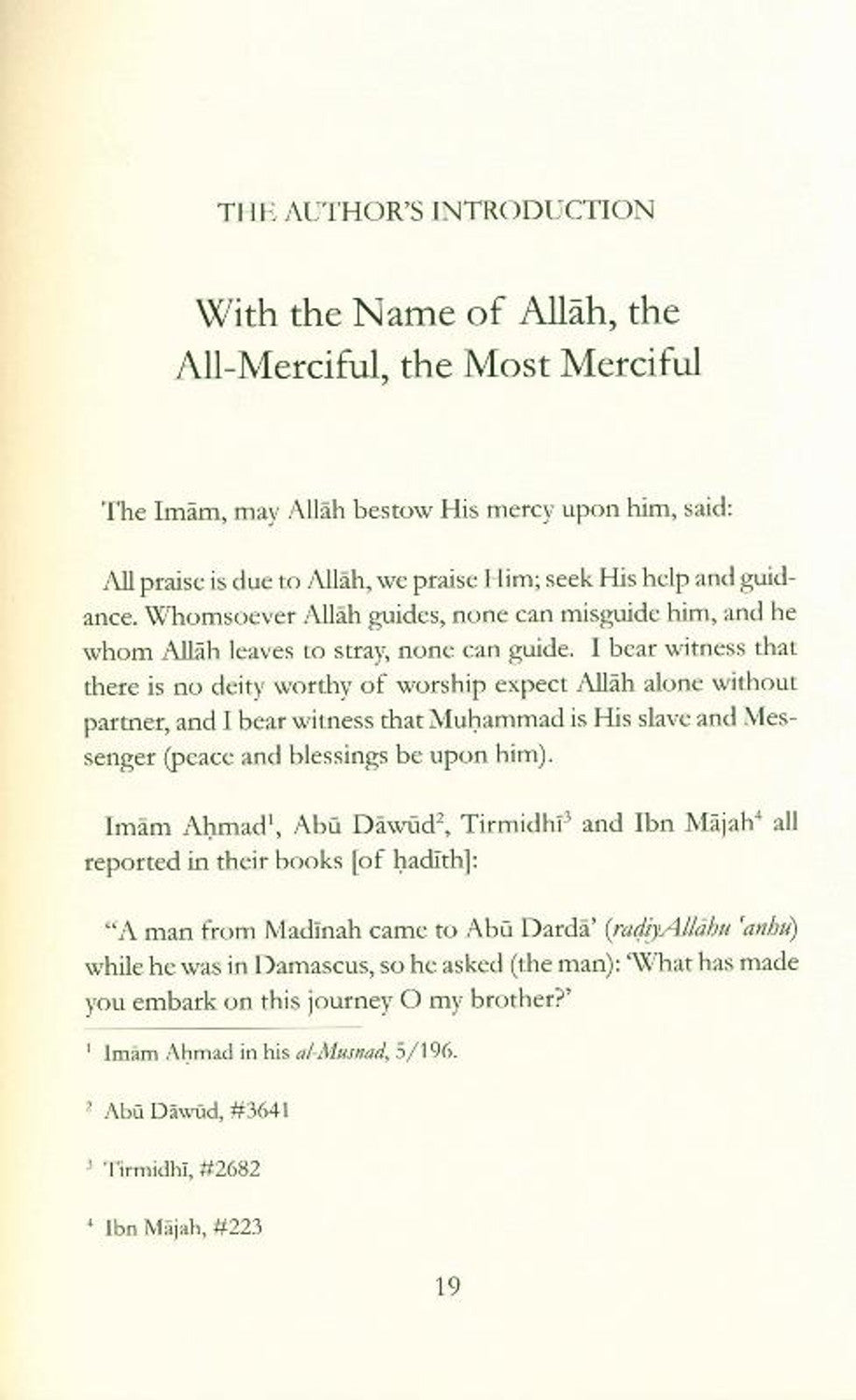
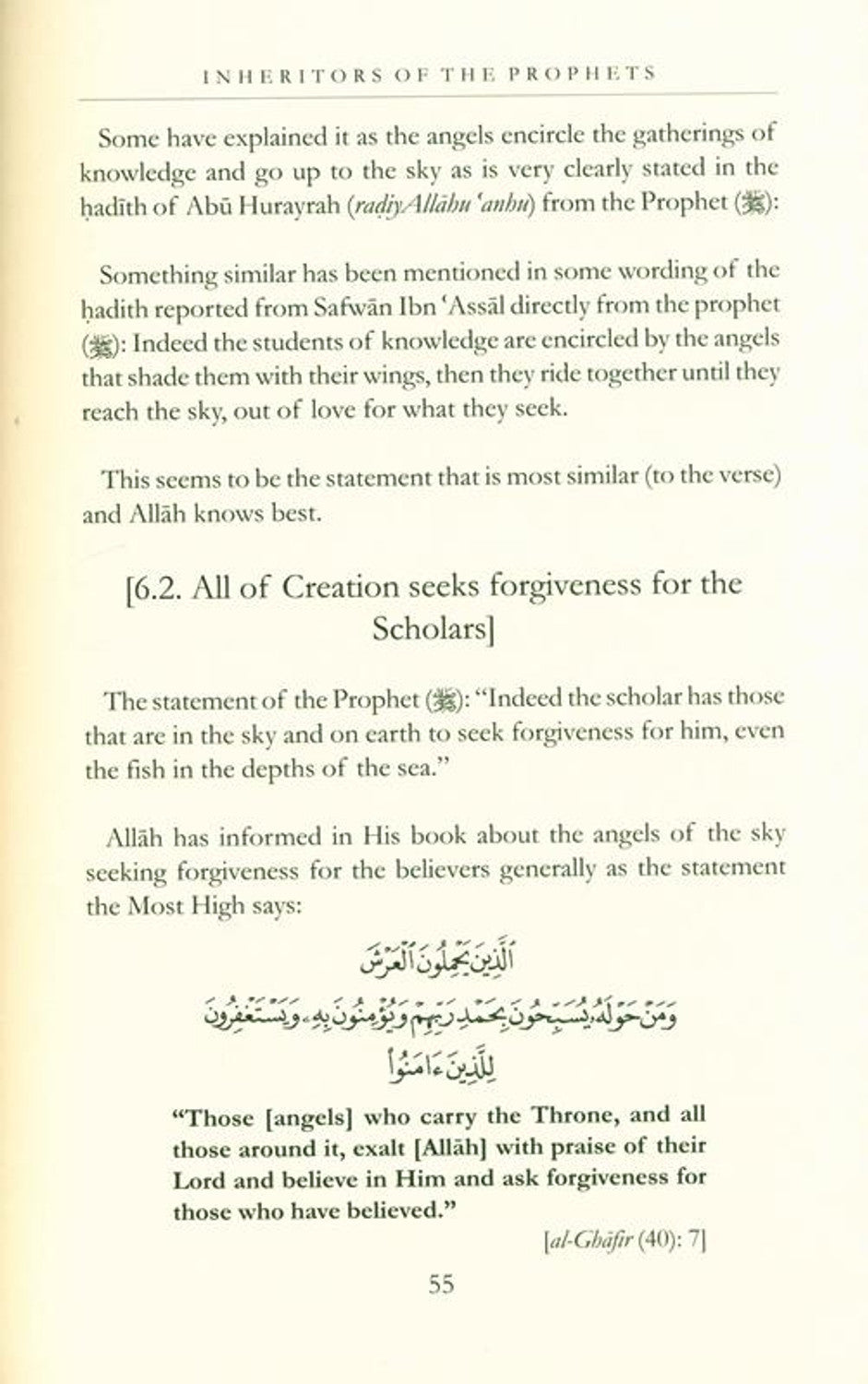
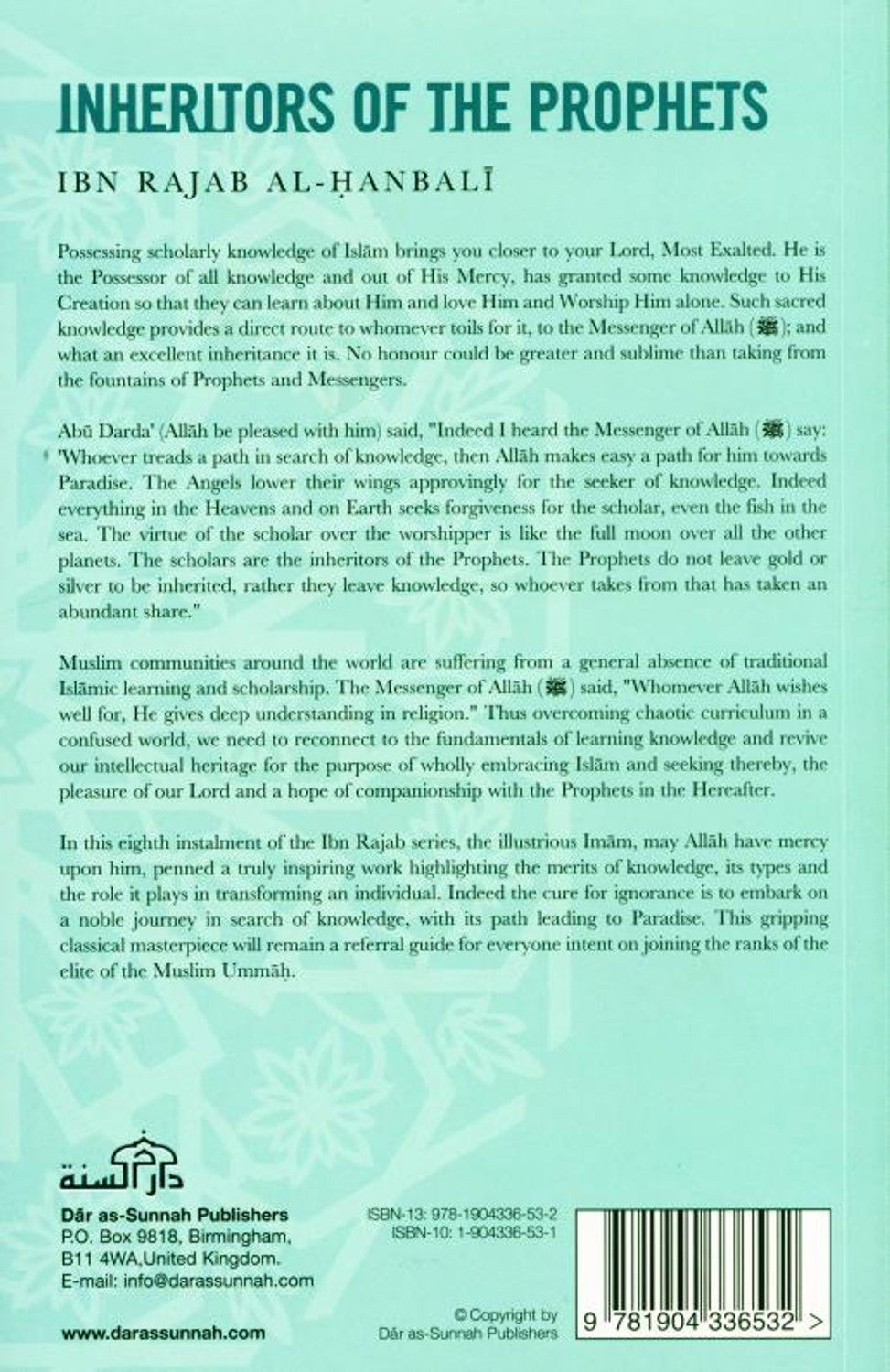
Collapsible content
Description of Book
Inheritors Of The Prophets by Ibn Rajab al-Hanbali: Uncovering the Sacred Knowledge of Islam that Brings Us Closer to Our Lord For centuries, the pursuit of knowledge has been deeply valued in Islam as a means to understand and love the Almighty. The scholars are considered the heirs of the Prophets, inheriting their vast knowledge and wisdom. As the Messenger of Allah (peace and blessings be upon him) said, "Whoever seeks knowledge, Allah will make their path to paradise easier." The angels themselves approve of those who seek knowledge, and everything in the heavens and on earth seeks forgiveness for the scholars. This eighth instalment in the Ibn Rajab series delves into the virtues of knowledge and its transformational power. Let us honor our intellectual heritage and strive for a deeper understanding of our religion, in hopes of attaining the pleasure of our Lord and the companionship of the Prophets in the Hereafter.
Publisher
Dar As Sunnah Publications
Author
- Ibn Rajab Al-Hanbali
Sample Pages - Content
Page : 01
DAR AS-SUNNAH CLASSIC COLLECTION INHERITORS OF THE PROPHETS IBN RAJAB AL-HANBALI دار السنة
Page : 02
CONTENT FOREWORD THE AUTHOR Hafiz Abu'l-Faraj Ibn Rajab al-Hanbalī THE AUTHOR'S INTRODUCTION CHAPTER ONE The Pursuit for Sacred Knowledge 1.1. Travelling for Knowledge CHAPTER TWO Knowledge is a Path Leading to Paradise 2.1. Knowledge Necessitates Righteous Action 2.2. Knowledge Directs one to Allah 2.3. The Parable between the Possessors of Knowledge and the Stars 2.4. Knowledge is a Cause for People to be Guided CHAPTER THREE Knowledge of the Tongue and the Heart 3.1 Beneficial knowledge 3.2. The Division of Knowledge 11 39 13 19 225 21 23 27 29 30 30 39 32 32 33335 37
Page : 03
CHAPTER FOUR The Categories of the Scholars 4.1. The Corrupt Scholars 4.2. The Deceived Scholars 4.3 The Virtuous Scholars 39 41 42 43 CHAPTER FIVE The Gatherings of Knowledge 5.1 What is Compulsory for Every Muslim to Know? 5.2. How the Scholars were Hesitant in giving Religious Verdicts 5.3. The Gatherings of Remembrance 5.4. The Best Gatherings of Remembrance CHAPTER SIX All of Creation seeks forgiveness for the Scholars 6.1. Angels Lowering their Wings for the Student of Knowledge 45 47 15 7550 49 50 51 53 53 6.2. All of Creation seeks forgiveness for the Scholars 55 6.3. The Virtues of the Scholars 58 60 6.4. The Weeping of Creation for the Scholars CHAPTER SEVEN Love for the Scholars 7.1. Killing a Scholar is like killing a Successor of a Prophet() 7.2. The Superiority of the Scholar over the 63 63 64 Worshiper 66 7.3. The Scholars are the First Group to Enter Paradise 684
Page : 04
THE AUTHOR'S INTRODUCTION With the Name of Allah, the All-Merciful, the Most Merciful The Imam, may Allah bestow His mercy upon him, said: All praise is due to Allah, we praise Him; seek His help and guid- ance. Whomsoever Allah guides, none can misguide him, and he whom Allah leaves to stray, none can guide. I bear witness that there is no deity worthy of worship expect Allah alone without partner, and I bear witness that Muhammad is His slave and Mes- senger (peace and blessings be upon him). Imam Ahmad', Abu Dawud2, Tirmidhi3 and Ibn Majah* all reported in their books [of hadith]: "A man from Madinah came to Abu Darda' (radiy Allahu 'anhu) while he was in Damascus, so he asked (the man): "What has made you embark on this journey O my brother?" Imam Ahmad in his al-Musnad, 5/196. ? Abū Dawūd, #3641 Tirmidhi, #2682 + Ibn Majah, #223 19
Page : 05
INHERITORS OF THE PROPHETS Some have explained it as the angels encircle the gatherings of knowledge and go up to the sky as is very clearly stated in the hadith of Abu Hurayrah (radiy Allahu 'anhu) from the Prophet (3): Something similar has been mentioned in some wording of the hadith reported from Safwan Ibn 'Assal directly from the prophet (*): Indeed the students of knowledge are encircled by the angels that shade them with their wings, then they ride together until they reach the sky, out of love for what they seek. This seems to be the statement that is most similar (to the verse) and Allah knows best. [6.2. All of Creation seeks forgiveness for the Scholars] The statement of the Prophet (): "Indeed the scholar has those that are in the sky and on earth to seek forgiveness for him, even the fish in the depths of the sea." Allah has informed in His book about the angels of the sky seeking forgiveness for the believers generally as the statement the Most High says: الَّذِينَ يَحْمِلُونَ الْعَرْشِ وَمَنْ حَوْلَهُ يُسَبِّحُونَ بِحَمْدِ رَبِّهِمْ وَيُؤْمِنُونَ بِهِ وَيَسْتَغْفِرُونَ لِلَّذِينَ ءَامَنُوا "Those [angels] who carry the Throne, and all those around it, exalt [Allah] with praise of their Lord and believe in Him and ask forgiveness for those who have believed." [al-Ghafir (40): 7] 55
Page : 06
INHERITORS OF THE PROPHETS IBN RAJAB AL-HANBALI Possessing scholarly knowledge of Islam brings you closer to your Lord, Most Exalted. He is the Possessor of all knowledge and out of His Mercy, has granted some knowledge to His Creation so that they can learn about Him and love Him and Worship Him alone. Such sacred knowledge provides a direct route to whomever toils for it, to the Messenger of Allah(); and what an excellent inheritance it is. No honour could be greater and sublime than taking from the fountains of Prophets and Messengers. Abū Darda' (Allah be pleased with him) said, "Indeed I heard the Messenger of Allah () say: 'Whoever treads a path in search of knowledge, then Allah makes easy a path for him towards Paradise. The Angels lower their wings approvingly for the seeker of knowledge. Indeed everything in the Heavens and on Earth seeks forgiveness for the scholar, even the fish in the sea. The virtue of the scholar over the worshipper is like the full moon over all the other planets. The scholars are the inheritors of the Prophets. The Prophets do not leave gold or silver to be inherited, rather they leave knowledge, so whoever takes from that has taken an abundant share." Muslim communities around the world are suffering from a general absence of traditional Islamic learning and scholarship. The Messenger of Allah () said, "Whomever Allah wishes well for, He gives deep understanding in religion." Thus overcoming chaotic curriculum in a confused world, we need to reconnect to the fundamentals of learning knowledge and revive our intellectual heritage for the purpose of wholly embracing Islam and seeking thereby, the pleasure of our Lord and a hope of companionship with the Prophets in the Hereafter. In this eighth instalment of the Ibn Rajab series, the illustrious Imam, may Allah have mercy upon him, penned a truly inspiring work highlighting the merits of knowledge, its types and the role it plays in transforming an individual. Indeed the cure for ignorance is to embark on a noble journey in search of knowledge, with its path leading to Paradise. This gripping classical masterpiece will remain a referral guide for everyone intent on joining the ranks of the elite of the Muslim Ummah. السنة Där as-Sunnah Publishers P.O. Box 9818, Birmingham, B11 4WA,United Kingdom. E-mail: info@darassunnah.com www.darassunnah.com ISBN-13: 978-1904336-53-2 ISBN-10: 1-904336-53-1 Copyright by 9 781904 336532 > Dár as-Sunnah Publishers
Ibn Rajab Al-Hanbali
Ibn Rajab al-Hanbali (1335–1393 CE) was a prominent Islamic scholar from the Hanbali school of jurisprudence, renowned for his deep knowledge of hadith, fiqh (Islamic jurisprudence), and Islamic spirituality. He is best known for his works on the virtues of the Islamic faith, such as Lata'if al-Ma'arif (The Subtle Blessings), which highlights the significance of Islamic holidays, acts of worship, and recommended practices. Ibn Rajab was also an expert in the science of hadith and authored works that discussed the lives and biographies of prominent scholars and the importance of piety and sincerity in worship. His scholarship continues to be highly regarded, especially for its emphasis on spirituality and ethical conduct.






